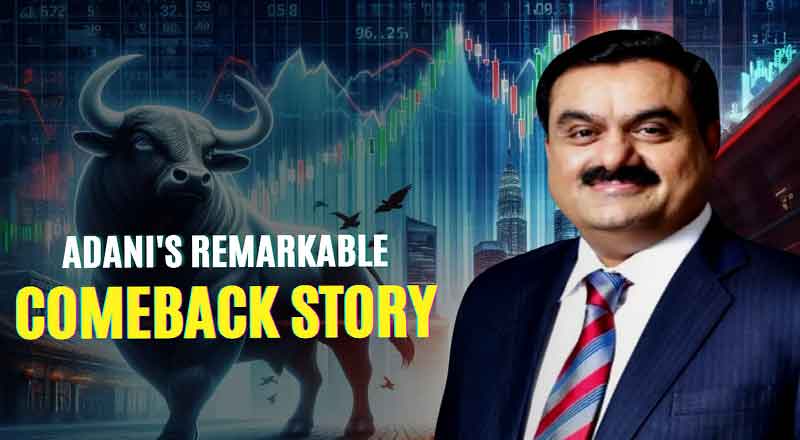- Gautam Adani delved into the depths of one of the most challenging episodes in recent corporate history—the Hindenburg attack.
- Adani’s candid reflections offered a rare glimpse into the inner workings of crisis management and the strategic maneuvers employed to navigate turbulent waters.
- Adani’s characterization of the Hindenburg attack as the world’s most significant assault on a corporate entity underscored the magnitude of the challenges faced.
- Despite the storm raging around him, Adani maintained an active presence, attending high-profile events and engagements.
- The Adani Group’s response to the Hindenburg attack was characterized by swift and decisive action.
- Reflecting on the experience, Adani highlighted two key learnings: the paramount importance of liquidity and proactive communication in mitigating reputational damage.
- Despite the challenges faced, Adani remains optimistic about the future of infrastructure development in India.
In a thought-provoking dialogue at an event in Mumbai, Gautam Adani, the Chairman of the Adani Group, delved into the depths of one of the most challenging episodes in recent corporate history—the Hindenburg attack. Adani’s candid reflections offered a rare glimpse into the inner workings of crisis management and the strategic maneuvers employed to navigate turbulent waters.
Adani’s characterization of the Hindenburg attack as the world’s most significant assault on a corporate entity underscored the magnitude of the challenges faced. Combining financial market pressures with political theatrics, fueled by media scrutiny both domestically and internationally, the attack presented a formidable adversary.
Initially, Adani admitted to underestimating the impact of the attack, perceiving it as yet another round of recycled allegations. However, as the situation unfolded, the gravity of the crisis became increasingly apparent. Despite the storm raging around him, Adani maintained an active presence, attending high-profile events and engagements while simultaneously grappling with the unfolding turmoil.
The Adani Group’s response to the Hindenburg attack was characterized by swift and decisive action. Implementing a multi-faceted strategy, the group returned Follow on Public Offer (FPO) proceeds, bolstered cash reserves, and preemptively addressed financing concerns. By shielding key executives from external noise and maintaining focus on core business operations, Adani ensured that the momentum of growth and expansion projects remained undeterred.
Effective communication emerged as a cornerstone of the group’s crisis management efforts. Recognizing the importance of transparency and stakeholder engagement, the Adani Group established a dedicated war room to address inquiries promptly and comprehensively. Through an extensive engagement program, the group reaffirmed its commitment to stakeholders, fostering trust amidst uncertainty.
Reflecting on the experience, Adani highlighted two key learnings: the paramount importance of liquidity and proactive communication in mitigating reputational damage. Despite the challenges encountered, Adani expressed regret for the retail shareholders who incurred losses, reaffirming the absence of merit in the allegations levied against the group.
In addition to addressing the Hindenburg attack, Adani offered insights into the genesis and success of Mundra Port—a testament to infrastructure excellence. Mundra Port stands out as the first port conceived, designed, and developed by a user, reflecting Adani’s firsthand experience navigating the challenges of maritime logistics.
Drawing from his journey “from jetty to jet,” Adani imbued Mundra Port with a deep understanding of user needs, setting a precedent for user-centric infrastructure development. By offering a comprehensive range of services at reasonable costs and empowering middle-level functionaries to expedite decision-making, Mundra Port revolutionized the maritime industry.
Despite the challenges faced, Adani remains optimistic about the future of infrastructure development in India. Emphasizing the need for systemic reforms and addressing structural deficiencies in project financing, Adani highlighted the importance of regulatory frameworks in fostering a conducive environment for infrastructure growth and development.
Gautam Adani’s journey through crisis and infrastructure excellence serves as a testament to resilience, strategic foresight, and unwavering commitment to growth. Despite encountering significant challenges, Adani’s leadership and vision have positioned the Adani Group as a resilient force in the corporate landscape, poised to navigate future challenges with resilience and resolve.
(With inputs from agencies)



